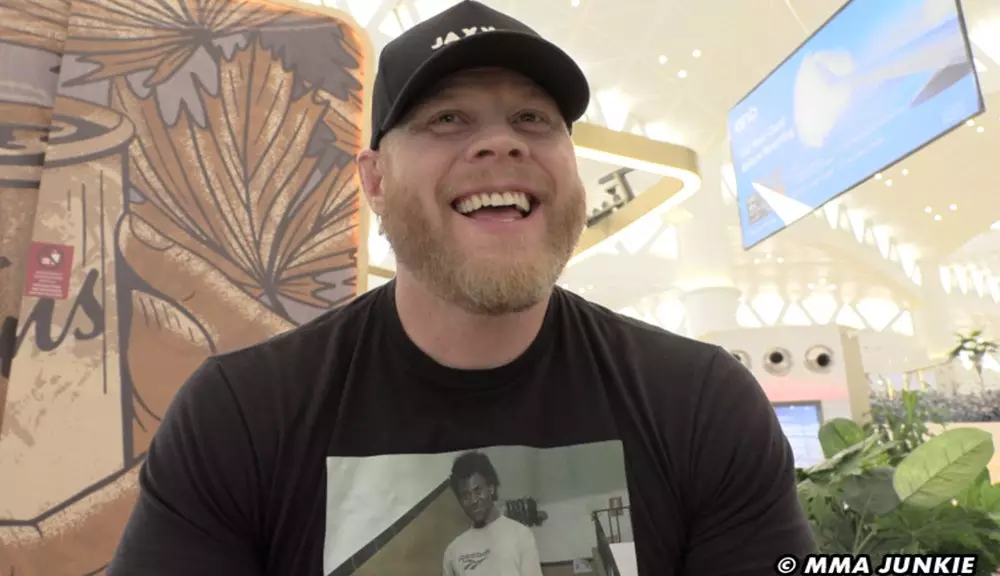In the world of mixed martial arts (MMA), the competition is brutal, not only physically but also emotionally. Francis Ngannou, a prominent figure in the sport, has recently stepped back into the ring, and his journey back to the top of the heavyweight division is nothing short of incredible. Following the tragic loss of his 15-month-old son, Ngannou faced one of the biggest challenges of his life—returning to fight after a lengthy hiatus of almost three years away from the octagon. His recent encounter with Renan Ferreira at the PFL: Battle of the Giants showcases not only his skill but also his profound ability to withstand despair.
Ngannou’s physical preparation for this bout was marred by a rib injury that almost forced him to withdraw from the fight. His head coach, Eric Nicksick, noted that as the fight drew closer, concern over Ngannou’s condition loomed large. The prospect of fighting while injured, particularly in a grappling-based strategy, added another layer of complexity to the situation. Nicksick recognized the stakes were high, remarking on the significant emotional weight that carried through Ngannou’s previous encounter with Ciryl Gane, where he fought through knee issues.
Despite these challenges, Ngannou decided to press forward after receiving medical clearance. This decision signifies not just the physical resilience required of a fighter but also a deep psychological resolve—he had to overcome not only his injury but also the emotional turmoil stemming from his son’s death.
Emotional burdens can often lead athletes to reconsider their careers, and Ngannou was no exception. Following the death of his son Kobe earlier that year, he found himself contemplating retirement. However, he ultimately chose to channel his grief into a powerful motivation for his comeback. His desire to honor his son through a winning performance offered a new perspective on his drive to compete.
When Ngannou secured the knockout victory against Ferreira in the first round to capture the inaugural PFL superfight heavyweight title, the release of pent-up emotions was palpable. The moment he wrapped his arms around Nicksick, tears streamed down their faces—signifying the weight lifted from Ngannou’s shoulders, even if only momentarily. This heartfelt embrace encapsulated the emotional crossroads Ngannou had navigated to reclaim his place in MMA—victory had become not just a professional goal but a deeply personal tribute.
Leading up to the fight, Ngannou struggled with self-doubt, a commonplace emotional adversary for many athletes returning to competitive sports after significant life events. His motivation was multifaceted; beyond honoring his son, Ngannou needed to affirm to himself that he still had what it takes to compete at the highest level. As he approached the moment of truth, the pressure to perform weighed heavily upon him, underscoring an internal battle of confidence versus fear.
Nicksick’s unwavering belief in Ngannou’s capabilities acted as a crucial counterbalance to his uncertainty. He provided both tactical guidance and emotional support, reminding Ngannou of his past resilience—his journey from poverty in Cameroon to the pinnacle of MMA fame was a testament to his courage and determination.
The Importance of Emotional Healing
Winning the title was not the end goal for Ngannou; rather, it was a pivotal step toward healing. The emotional scars of losing a child are deep, and while awards and recognition in sports can help in some ways, they cannot erase the pain. The outpouring of emotion after the fight highlighted that success in the ring had become intertwined with his need for personal recovery and remembrance.
Francis Ngannou’s story of resilience and emotional strength underscores the complexities of being an athlete. It serves as a powerful reminder that behind the triumphs and titles lie deep personal battles that define who they are both inside and outside the ring. As Ngannou continues to navigate life after loss and pursue excellence in MMA, his journey will likely resonate with those facing adversity—proving that even in the face of unimaginable grief, it is possible to rise again, stronger and more determined than ever.

